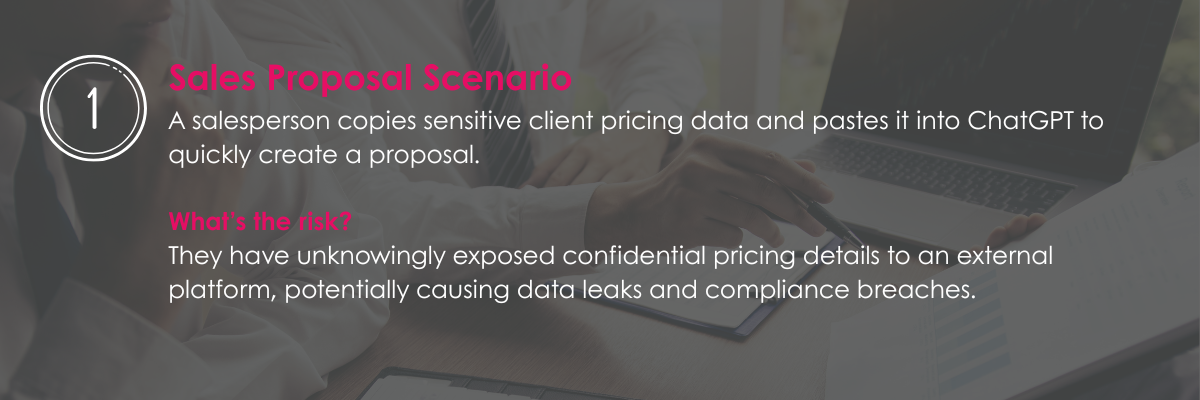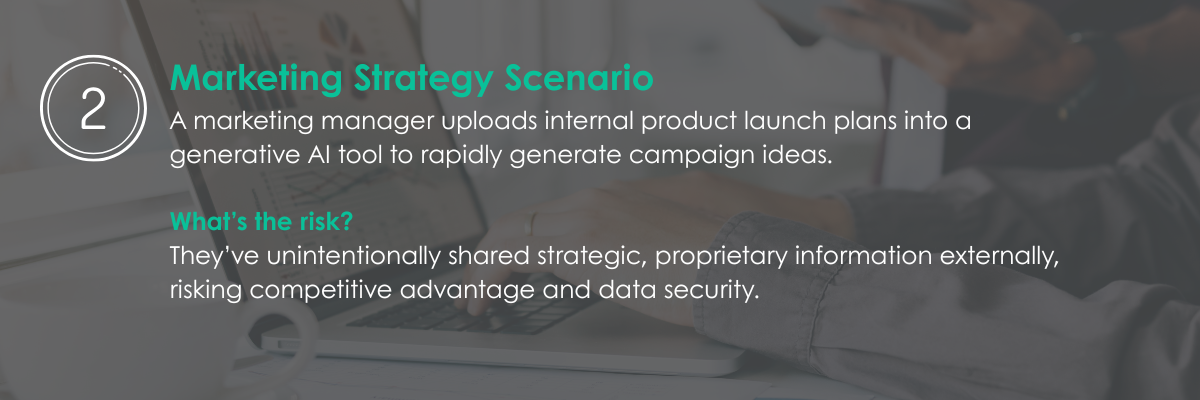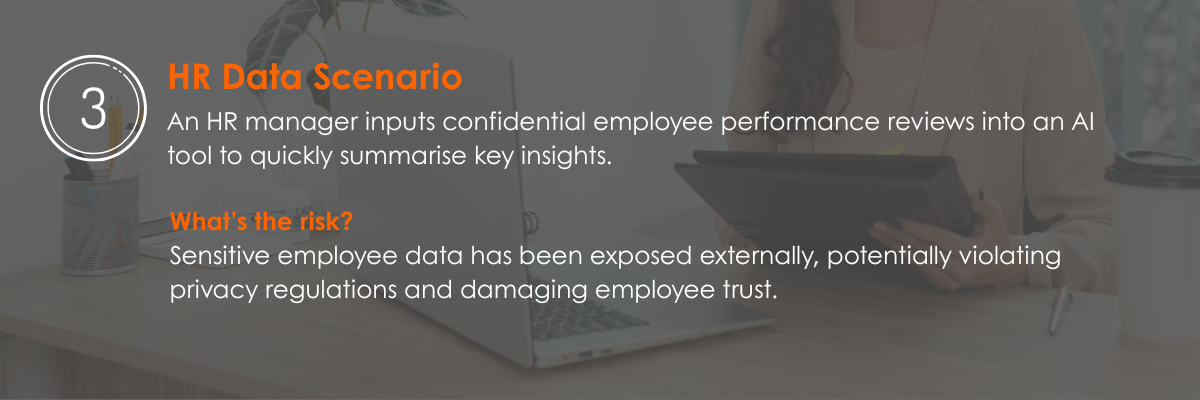48% of employees expose sensitive data to GenAI: Are you protected?
Rapid adoption of generative AI tools like Microsoft Copilot and ChatGPT has significantly boosted productivity but also introduced substantial data security risks.
A recent global study by KMPG found that 48% of employees admit using AI in ways that violate company policies, including uploading sensitive data to public AI platforms. In Australia, KPMG found 49% of employees intentionally use generative AI regularly, yet just 30% report having a clear organisational policy on its use.
Organisations can no longer afford a casual approach, nor can they rely on blanket bans that stifle innovation. Instead, executives must urgently ask themselves: “Do we truly know how our people are using AI, and are we adequately protected?” The solution lies in proactively establishing robust governance frameworks to close internal gaps, ensuring AI remains a strategic advantage rather than a source of anxiety.
With sensitive data leaks posing serious risks, from regulatory fines and reputational damage to competitive setbacks, the time to act is now.
The risks associated with data leaks
Sensitive data leaks often happen unintentionally when employees use generative AI tools like ChatGPT or Microsoft Copilot to streamline everyday tasks, unaware of the associated security implications.
 Varonis' State of Data Security report highlights the risks of sensitive data exposure linked to generative AI and cloud environments. The findings paint a clear picture of just how widespread the exposure to data leaks through generative AI really is.
Varonis' State of Data Security report highlights the risks of sensitive data exposure linked to generative AI and cloud environments. The findings paint a clear picture of just how widespread the exposure to data leaks through generative AI really is.
Overall, the research indicated that not a single organisation among the 1,000 surveyed was fully prepared to mitigate the risks of data leaks in the generative AI era.
Beyond immediate data leakage, these incidents also lead to substantial hidden costs.
- Regulatory and Reputational Consequences:
Mishandling sensitive data through generative AI tools often breaches strict privacy laws, leading to regulatory investigations and hefty fines. A CivicScience study found that 56% of consumers completely lose trust in a company following a data breach, amplifying the long-term reputational damage. - Financial Implications of Breach Response:
Responding to a data breach also involves significant unplanned expenditures, including investigation costs, legal fees, remediation expenses, and crisis management. These financial burdens can rapidly escalate, straining company resources and impacting overall profitability. - Security Risks from Compromised or Poisoned Datasets:
When sensitive information is exposed via AI platforms, it can be exploited by malicious actors to further compromise your systems. Poisoned datasets can be used to generate manipulated outputs which can corrupt decision-making processes, causing operational disruptions and amplify cybersecurity vulnerabilities across your organisation.
Proactive governance to protect against these costs is essential, safeguarding both your data integrity and organisational health.
Given these significant risks and potential costs, it's crucial to understand how easily data leaks can happen in everyday scenarios.
The following real-world examples clearly illustrate how sensitive information can unintentionally be exposed through generative AI:



Faced with these risks, some companies might consider completely restricting or banning AI tools. While a cautious approach is understandable, outright bans usually prove impractical and can hinder innovation. Instead, organisations should proactively implement clear guidelines and monitor AI usage closely. Thoughtful, balanced governance allows your business to harness AI’s benefits safely, effectively managing risks without sacrificing productivity or innovation.
Essential steps to protect sensitive data
Mitigating the risks of sensitive data exposure through generative AI requires robust governance, clear leadership, and consistent vigilance. In our experience, organisations that proactively embed governance into their AI strategy don't just protect data, they unlock greater trust, innovation, and competitive advantage.
- Establish explicit data classification policies:
Clearly define and communicate what data can safely interact with generative AI. Establish straightforward classification levels, public, internal, confidential, and restricted, to guide employees in securely managing sensitive information.
- Implement clear AI usage guidelines:
Provide employees with clear guidelines and illustrative examples of acceptable AI tool usage, ensuring they fully understand risks and best practices for maintaining data security.
- Regular monitoring and auditing:
Regularly monitor and audit AI tool interactions to promptly detect and address misuse or potential data leaks. Continuous oversight helps enforce compliance and safeguards sensitive information.
Embedding these governance measures isn't merely about risk reduction; it's about turning potential vulnerabilities into strategic strengths. Thoughtful AI governance positions your organisation as trustworthy and reliable, enhancing your competitive edge in today's complex digital landscape.
Make AI your strategic advantage, not a liability
In today’s digital landscape, AI governance isn't just best practice, it's a business imperative. By proactively aligning AI usage with clear policies, robust data handling controls, and continuous oversight, you turn potential vulnerabilities into strategic strengths.
At The Missing Link, our comprehensive AI consulting services ensure your organisation harnesses AI safely, strategically, and compliantly. Starting with our structured AI maturity assessment, we help you quickly identify current governance gaps and areas for improvement. From there, we support your journey with tailored governance frameworks, Microsoft Copilot enablement, robust data protection strategies, and seamless integration with leading security tools and industry frameworks.
If you're ready to take the next step towards secure and strategic AI adoption, our experts are here to help. Contact our team today to discuss your AI governance needs.
Author
Deirdre is the AI Governance & Automation Strategy Lead at The Missing Link. A transformation leader in AI governance, automation, and compliance-led delivery, she has built Centres of Excellence, shaped enterprise AI policies, and delivered scalable solutions across industries. Known for bridging innovation and risk, she advises globally on responsible AI adoption and sustainable tech, with award recognition and experience across APAC, Europe, the USA, and Africa.
